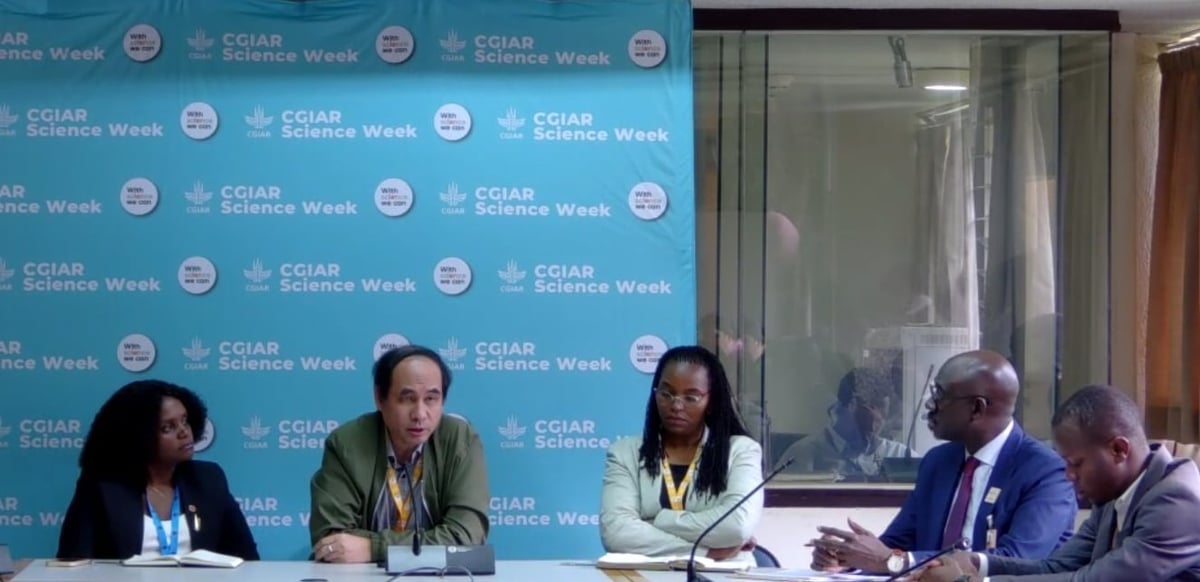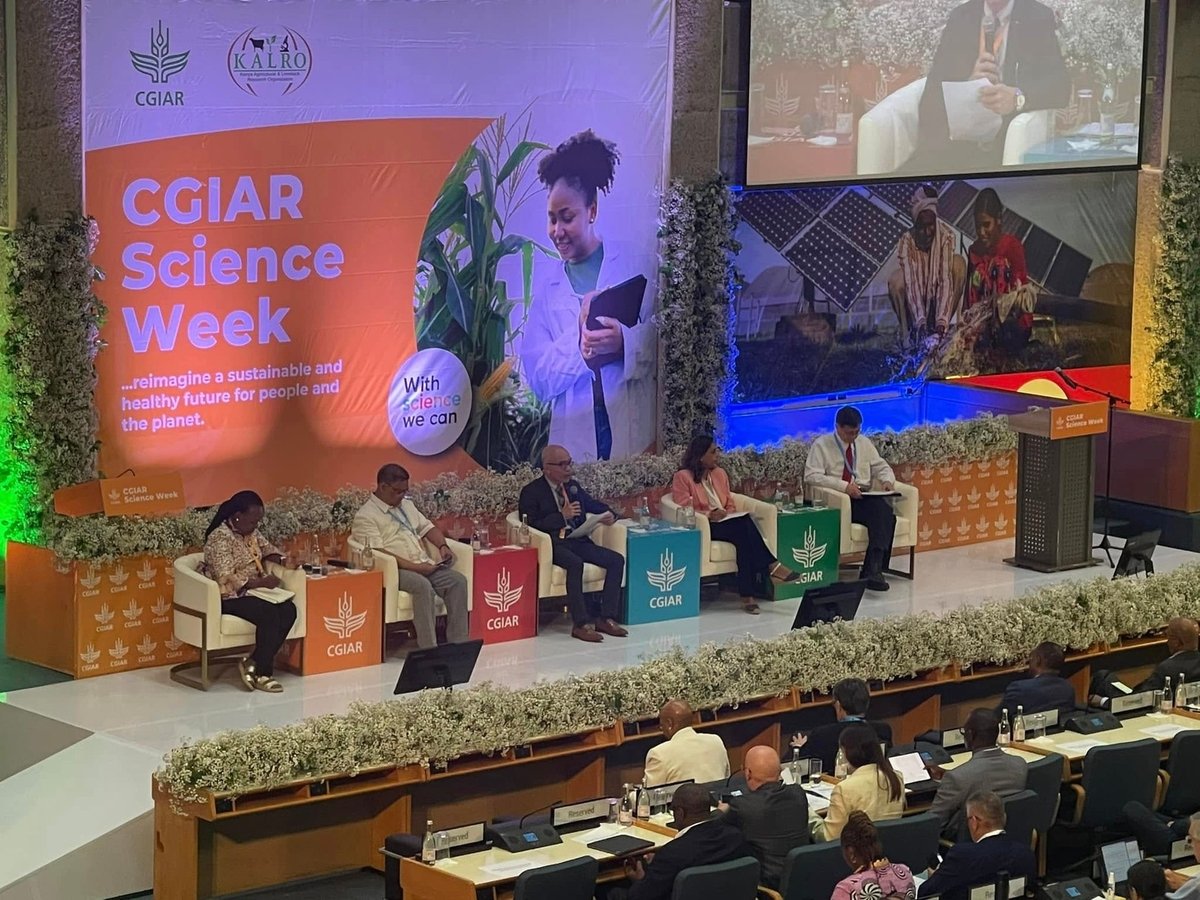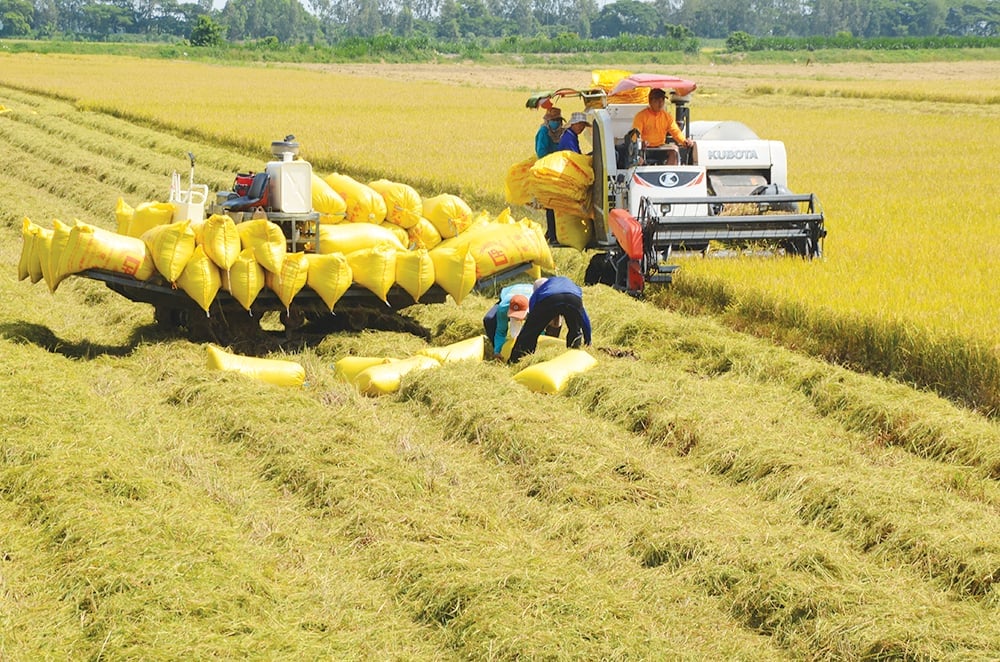May 20, 2025 | 16:45 GMT +7
May 20, 2025 | 16:45 GMT +7
Hotline: 0913.378.918
May 20, 2025 | 16:45 GMT +7
Hotline: 0913.378.918

Associate Professor, Dr. Dao The Anh (second from left) at the One Health Workshop on the sidelines of CGIAR Science Week. Photo: ILRI.
Dr. Dao The Anh, Associate Professor and Vice President of the Vietnam Academy of Agricultural Sciences (VAAS), provided practical experience from Vietnam in the implementation of One Health at the "One Health Horizons: Catalyzing Collaborations, Innovations and Policies for Improving Global Health and Food Security" side event at the CGIAR Science Week.
During the event, the VAAS leader underscored the necessity of proactively mobilizing domestic resources in addition to seeking support from international organizations in order to effectively implement the One Health approach, which necessitates multisectoral coordination.
One notable example is the Vietnam One Health Partnership Framework (OHP), a forum that unites government agencies, the private sector, research institutions, and international organizations to encourage comprehensive and coordinated actions.
In order to support the national objective of food system transformation, the OHP framework has broadened its scope to include the promotion of an agroecological approach, the integration of objectives related to the health of crops, soil, and water, and the monitoring of the use of fertilizers and antibiotics in both farming and livestock production.

Mr. To Viet Chau, Deputy Director of the International Cooperation Department, Ministry of Agriculture and Environment, was one of the speakers at the discussion session on "Promoting Regional Integration and South-South Cooperation". Photo: ILRI.
In addition, Dr. Dao The Anh underscored the significance of implementing the One Health approach at the field level by establishing local-level One Health facilities and enhancing the capacity of grassroots officials through the development of data platforms.
A previous session, "Promoting Regional Integration and South-South Cooperation," which focused on the transformation of food systems, underscored the significant progress made by the CGIAR-ASEAN partnership in improving climate adaptation capacity and transforming food systems.
Deputy Director General of the International Cooperation Department under the Ministry of Agriculture and Environment, Mr. To Viet Chau, highlighted the significance of establishing comprehensive partnerships, promoting innovation, strengthening knowledge-sharing, building capacity, and aligning CGIAR support with national priorities in the context of climate change. Scaling up the CGIAR-ASEAN regional program to enhance food and nutrition security is a notable approach.

The OHP framework has now expanded its areas of activity to contribute to the goal of transforming the national food system through an agroecological approach, incorporating additional goals of improving plant health, soil, water, etc. Photo: Baodantoc.
This program's primary objective is to enhance the livelihoods of food producers, guarantee consumers' access to affordable, nutritious, and healthy food, and simultaneously establish a healthier natural environment throughout the ASEAN region.
The One Health approach is incorporated into the program to address the health of humans, animals, and the environment in a comprehensive manner. It is especially crucial to implement this strategy in the Southeast Asian region, where numerous infectious diseases are emerging and reemerging.
In response to the current global challenges of climate change, land degradation, and food insecurity, the Consultative Group on International Agricultural Research (CGIAR) is partnering with the Kenya Agricultural and Livestock Research Organization (KALRO) to host the inaugural CGIAR Science Week from May 7–12.
This occasion gathers prominent scientists and policymakers in the fields of agriculture, climate, and health, facilitating the development of strategic partnerships, fostering innovation, promoting action, and advancing research in order to mobilize investment in sustainable food systems that benefit both people and the environment.
Translated by Linh Linh

(VAN) In 2024, over 295 million people across 53 countries and territories faced acute hunger—an increase of almost 14 million people compared to 2023, while the number of people facing catastrophic levels of hunger reached a record high.

(VAN) World Environment Day 2025 (June 5) carries the theme 'Beat Plastic Pollution' continuing to emphasize the global urgency of addressing the plastic waste crisis.

(VAN) This was the assessment shared by experts at the workshop titled 'Assessing the Role and Potential of Low-Emission Rice Production Systems in Vietnam,' held on the morning of May 19.

(VAN) Cai Rong Port is the fisheries control center of Quang Ninh, helping to monitor fishing vessels, combat IUU fishing, and remove the EC's 'yellow card'.

(VAN) The German Agricultural Society (DLG) explores the possibility of establishing a mechanization service center in Vietnam’s Mekong Delta to support farmers in accessing and utilizing advanced machinery.

(VAN) On May 16, the Department of Water Resources Management, in collaboration with the Food and Agriculture Organization of the United Nations (FAO), held a signing ceremony for the GEF-8 project document.

(VAN) Food safety, mechanization, vocational training, and market opening are key areas of cooperation expected between the Vietnamese Government and the Federal Republic of Germany.